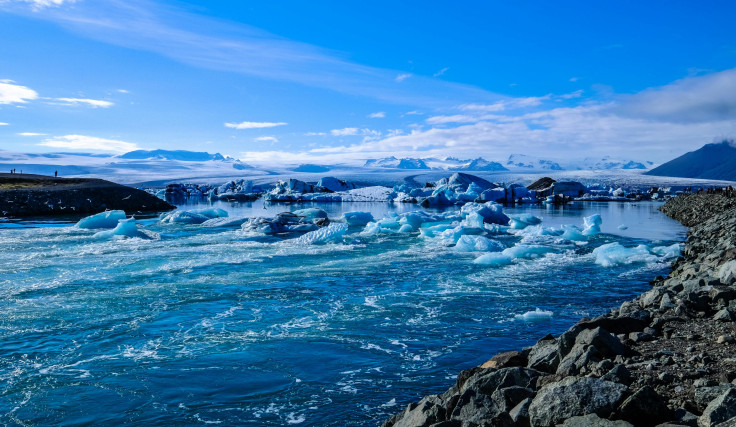When It Comes To Climate Action, COP28 Set The Standard – Now COP30 Must Deliver The Future
1% Of Global GDP Is The Bare Minimum To Try To Limit Global Temperature Rise

At COP29 in November, the world's least developed countries made a last-ditch and desperate plea to get monetary support of $1.3 trillion annually—just 1% of global GDP and the bare minimum required to try to limit global temperature rise to 1.5°C.
But negotiations left developing nations exhausted, disillusioned, and ultimately betrayed. Instead of the necessary $1.3 trillion, they walked away with just $300 billion – an insulting fraction of what's needed.
Desperate Call To Action
By 2050, climate change is projected to devastate the Global South, uprooting 143 million people and unleashing untold human and economic suffering – challenges that are already rippling across borders, threatening even the wealthiest nations. Despite this coming onslaught, much of the developed world seems content to watch the planet burn.
Last year, I attended COP28 in the UAE as a UN delegate and speaker. Under the leadership of Dr. Sultan Al Jaber, that summit delivered concrete progress that should have served as a launchpad for this year's summit.
COP28 was unprecedented in its inclusivity. It intentionally elevated the voices of civil society, indigenous communities, women, and critics of fossil fuels. For the first time, these perspectives were not mere footnotes but integral to negotiations.
Dubai's Blue Zone, where negotiations are held – opened its doors to 88,000 attendees. The Green Zone welcomed 400,000 visitors to hundreds of events and hosted groundbreaking initiatives like the Faith Pavilion – a place for pastors, imams, rabbis and other religious leaders to share a faith approach to climate change.
The summit also introduced a dedicated Health Day, with Al Jaber casting light on an issue I've been fighting to be heard on for years: that climate change is "one of the greatest threats to human health in the 21st century."
Real World Problem
As someone who works to support hospitals and medical initiatives in my native country of Chad and across Africa, I've seen firsthand how climate change directly impacts healthcare. Rising temperatures make storing blood and medicines at the correct temperatures harder. Thousands are spent on air-conditioning rather than life-saving treatments.
Among COP28's standout achievements were the UAE Consensus, which saw 197 countries commit to phasing out fossil fuels and aligning economic growth with nature-based solutions. Indigenous and local community voices were cited nine times in the cover decisions.
The summit also made strides in climate finance: Dr. Sultan emphasised the trillions needed to address the climate crisis, and the UAE walked the walk. Notably, it mobilised $2.7 billion for nature-related projects globally, spearheaded seed funding initiatives, and made bold green investments in Africa to address energy and climate challenges.
COP28 also launched a long-awaited loss and damage fund to support the world's most vulnerable nations, with initial pledges of $700 million.
COP29 Failed Abysmally To Capitalise On This Momentum
Rather than advancing that fund this year, negotiations stalled, leaving the world's most vulnerable to fend for themselves effectively. Where COP28 centred inclusivity, COP29 seemed to sideline it. Minority groups, whose voices were amplified at COP28, were sidelined as political infighting dominated the agenda.
The Green Zone was more like a trade show than a village square for diverse stakeholders, and the Blue Zone was missing many key voices. Some world leaders skipped the summit altogether.
This lack of ambition and inclusivity betrayed the Global South, where the climate crisis is hitting hardest. As banks continue to pour $7 trillion into fossil fuels since the Paris Agreement, the paltry financial commitments made at COP29 are a stark reminder of the disconnect between rhetoric and action.
As the catastrophic impacts of climate change intensify, COP30, to be held in Belém, Brazil, in 2025, cannot come fast enough. While wealthier countries cling to ineffective pledges and outdated systems, the lessons from COP28 and the failures of COP29 must serve as a blueprint for this next vital summit.
COP30
Building on COP28's inclusivity and ambition, COP30 must once again elevate marginalised voices and take it a step further by embedding these voices not just inside events but also at the negotiation tables.
Dr Sultan's call for trillions of dollars in climate finance must be heeded. This requires wealthy nations to commit to systemic reform of global financial systems, directing investments toward renewable energy, loss and damage funds, and nature-based solutions.
The UAE's focus on Africa at COP28 was also a step in the right direction. Regional investment must continue, with special attention to the Global South, where the climate crisis is most severe.
Additionally, COP30 will demand countries submit more ambitious Nationally Determined Contributions (NDCs)—climate pledges made every five years. These commitments must include granular targets and detailed roadmaps government policies support, like phase-out dates for non-electric vehicles.
To the world's major economies, I say the time for excuses is over. COP30 in Brazil must be a decisive turning point. This year's missed opportunities cannot become a pattern. The stakes are too high, and the costs of inaction are already devastating lives and economies worldwide.
The achievements of COP28 proved that progress is possible. Let COP30 be the summit where progress becomes unstoppable.
About the author: Dr. Nathalie Beasnael founded Health4Peace, which provides essential medical supplies to hospitals in Chad, Senegal, Ghana and South Africa. She is the Diplomatic Envoy for the Republic of Chad to the USA. She was a delegate at the United Nations annual climate summit COP28, where she moderated a panel discussion on how climate change impacts human health. She is one of the leading recovery nurses at the California Surgical Institute in Beverly Hills. She has received several recognitions for her outstanding efforts in the health unit across the USA. Beasnael is actively involved in women's empowerment through initiatives like MAISONDENE, INC. Her work has recently been published in USA Today.
© Copyright IBTimes 2025. All rights reserved.





















